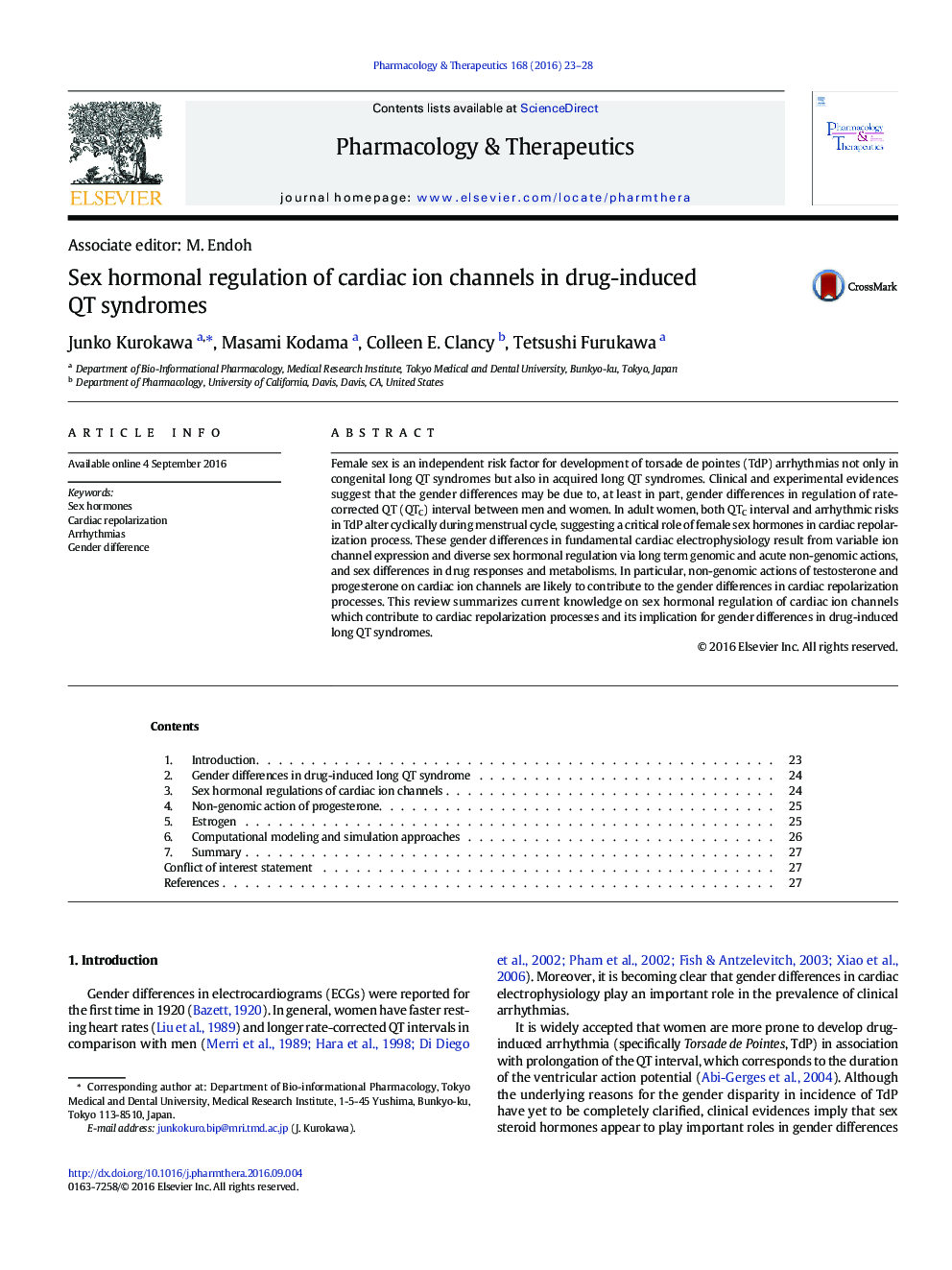| Article ID | Journal | Published Year | Pages | File Type |
|---|---|---|---|---|
| 5557807 | Pharmacology & Therapeutics | 2016 | 6 Pages |
Female sex is an independent risk factor for development of torsade de pointes (TdP) arrhythmias not only in congenital long QT syndromes but also in acquired long QT syndromes. Clinical and experimental evidences suggest that the gender differences may be due to, at least in part, gender differences in regulation of rate-corrected QT (QTC) interval between men and women. In adult women, both QTC interval and arrhythmic risks in TdP alter cyclically during menstrual cycle, suggesting a critical role of female sex hormones in cardiac repolarization process. These gender differences in fundamental cardiac electrophysiology result from variable ion channel expression and diverse sex hormonal regulation via long term genomic and acute non-genomic actions, and sex differences in drug responses and metabolisms. In particular, non-genomic actions of testosterone and progesterone on cardiac ion channels are likely to contribute to the gender differences in cardiac repolarization processes. This review summarizes current knowledge on sex hormonal regulation of cardiac ion channels which contribute to cardiac repolarization processes and its implication for gender differences in drug-induced long QT syndromes.
